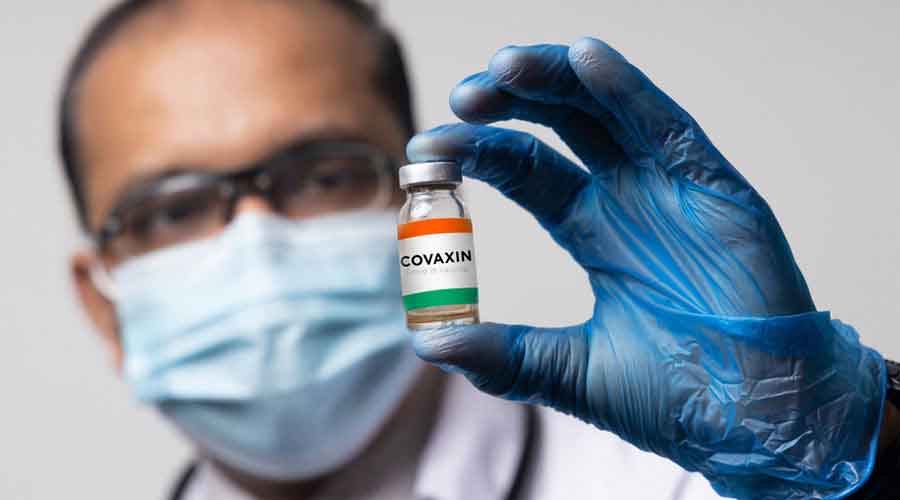Around 160,000 doses of Covaxin, the home-grown Covid vaccine, landed in Bengal on Friday, carrying with them multiple riddles that have landed state officials in a dilemma.
Some of the questions that awaited answers on Friday evening:
⚫ Bengal now has vials both of Covishield — the AstraZeneca-Oxford vaccine — and Covaxin. Who will decide which recipient will be given which vaccine?
⚫ What should be the response if someone refuses to take either of the two versions? Considerable misgivings have already crept in about the home-grown version because of a lack of transparency on the part of the Centre.
⚫ The central drug authority feels the two vaccines should be treated on a par. Does the lack of choice mean a potential recipient sceptical of Covaxin will be denied Covishield?
The questions have left Bengal officials undecided for now about how to distribute the Covaxin.
The state health department is likely to write to the Centre seeking clarifications before releasing the Covaxin vials, said an adviser after a departmental meeting on Friday evening to discuss the option to expand the immunisation drive using Covaxin.
In keeping with the Centre’s advisory to the states not to interchange vaccines, Bengal has decided to complete the inoculation of its healthcare workers with the available Covishield doses before selecting the next lot of recipients for Covaxin.
Bengal has so far received close to 14 lakh doses of Covishield. The state has around six lakh healthcare workers. Inoculations with Covishield took place on Friday at over 330 vaccination centres across 23 districts.
“We have enough Covishield stocks for the healthcare workers. Another two to three weeks without interruptions would be enough to complete the first round,” said a senior health department official at Swasthya Bhavan.
“The volume of Covaxin that reached us on Friday is way too little for any plan to be drawn up immediately. Hopefully we will get another consignment soon.”
Health department officials are also concerned whether the frontline workers – next in line for the vaccination after the healthcare workers -- would be keen on Covaxin, which has been released only on the basis of its safety and immune responses without efficacy data.
Advisers to the state health department have flagged certain concerns about the implementation plan to be followed for Covaxin, which they say require clarifications from the Centre.
“One question discussed today was how do we decide who should be offered Covishield and who should get Covaxin,” said one of the advisers.
“It is not clearly specified whose responsibility it is to administer the informed consent process. Recipients who decline Covaxin run the risk of not receiving any vaccine in its place. Given the pandemic situation, is that acceptable? Would this not be viewed as an indirect coercive strategy?”
Covaxin has already been rolled out in 12 other states, each of which received about 20,000 doses of the home-grown vaccine before the start of the Covid-19 vaccination campaign on January 16.
The national health mission director in one state that had received both Covishield and Covaxin told The Telegraph that a decision had been taken to distribute Covaxin to “certain medical colleges” without too much debate on the differences between Covishield and Covaxin.
“A decision was taken by the central drug regulatory authority and other authorities in Delhi that both vaccines should be treated equally. We do not have the scientific capacity to examine or question that decision,” the director said.











